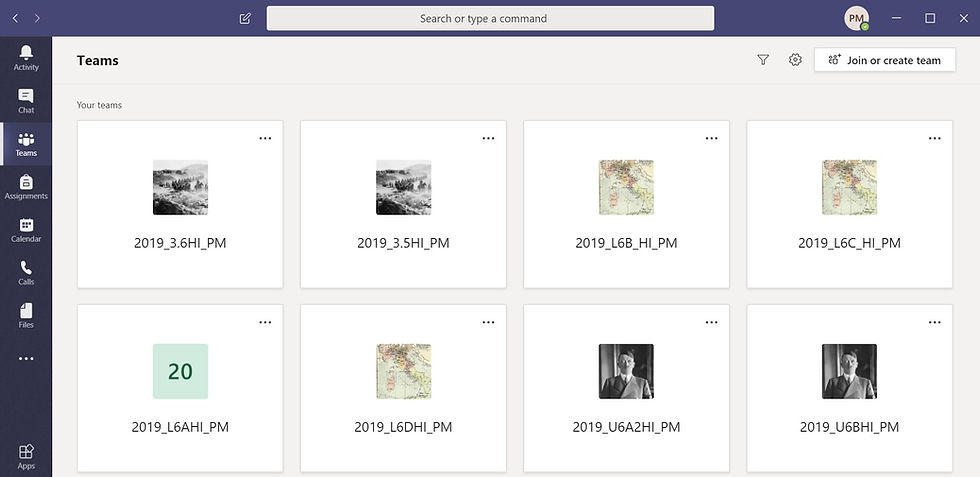A breakdown of...retrieval practice
- Teacher Breakdown

- Mar 20, 2019
- 3 min read
Updated: Apr 24, 2019
"I genuinely think this is the best thing I have ever created...ever"

So it wasn't my intention to go straight in with hard-hitting research; I hoped instead to spend a few weeks talking about staff room politics, what to do if a pupil hates you (#mylife) or how to avoid awkward social events. However, it seems that blogging, like teaching, does not always go to plan and so here I am.
The reason for this impromptu piece of pedagogy is the fact that I am delivering my first Teaching and Learning presentation on Friday. I made it my goal at the beginning of the year that I would present something to the staff body. In my head, I am treating it as some sort of academic 'Bar Mitzvah' as I finish my fifth year of teaching and shed the mantle of being an 'early-career teacher'. The session is also a great way to show off my Chartered Teacher research project that I have been working on for six months (not quite pregnancy standard, but its delivery was just as emotional).
My project focused on retrieval practice, which is one of the rare things within the teaching profession that is undisputed to work. Previously called 'the testing effect', the theory was concocted in 1909 by Edwina Abbott; since then, researchers within the fields of neuroscience, psychology and education have conducted laboratory studies to find out more about this phenomenon. My humble project, focused on a small area of this research: whether multiple-choice or short-answer questioning was more effective for developing subject knowledge.
Retrieval practice is the process of activating previously-dormant information in the brain, so that new connections are made, the information is consolidated and can be then be retrieved much more effectively next time. In the words of Robert Bjork (the father of retrieval practice in many peoples' eyes),
‘The act of retrieving an item from memory facilitates subsequent retrieval access to that item’ - Bjork (1988)
Ultimately, retrieval practice is something that all teachers at all Key Stages should be making use of; some examples of how it can be applied are below:
• Starter quizzes
• Direct verbal questioning
• Self-questioning
• Writing notes from memory
• Using flash cards
• Writing/planning essays
• Group discussion
• Mind maps
Regular use of retrieval practice will improve pupil performance (and also confidence); however, teachers are advised to use retrieval in an expanding sequence - e.g. a day later, then a week later, a month, etc.
‘Lengthening temporal intervals between retrieval opportunities increases their beneficial impact’ - Hopkins and Lyle (2016)
Now, before you go sprinting from your computer to use retrieval practice with your next class, there are a few things to consider:
FEEDBACK - This should always be given. If a pupil gets something wrong during retrieval, they should be given clear and detailed feedback so that they know how to improve next time.
LOW STAKES - Part of the reason why retrieval practice is no longer referred to as the 'testing effect' is because teachers use a variety of methods to activate recall, not just testing. In fact, 'tests' should be avoided completely! The last thing that pupils need is a blow to their self-esteem at the start of a lesson, so calling it a 'quiz' and not collecting in any marks, will improve pupil participation. My research also found that there is no difference in overall pupil performance between short-answer and multiple-choice testing; however, pupils reported feeling less nervous completing a multiple-choice quiz!
METACOGNITION - Lets face it, unless we tell them to, students will spend weeks of their holidays and study leave sitting in their gardens, making colourful posters and reading through their notes. This, of course, is largely pointless. Students should be made aware of retrieval practice. Explain why you are quizzing them every week, so that they might then do this themselves. Even better, make quizzes interactive so that students can access them from home - Google Forms is a great tool for this!
So there it is, a breakdown of retrieval practice. Hopefully you can now go away and utilise this mental phenomenon more effectively - your pupils may just scare you with what they can remember!

Bjork, R. A. ‘Retrieval practice and the maintenance of knowledge’ in M. M. Gruneberg, P. E. Morris, & R. N. Sykes (Eds.), Practical aspects of memory II (1988), 396-401
Hopkins, R. F. and K. B. Lyle, ‘Spaced Retrieval Practice Increases College Students’ Short- and Long-Term Retention of Mathematics Knowledge’, Educational Psychology Review (2016) 28. 853-873





Comments